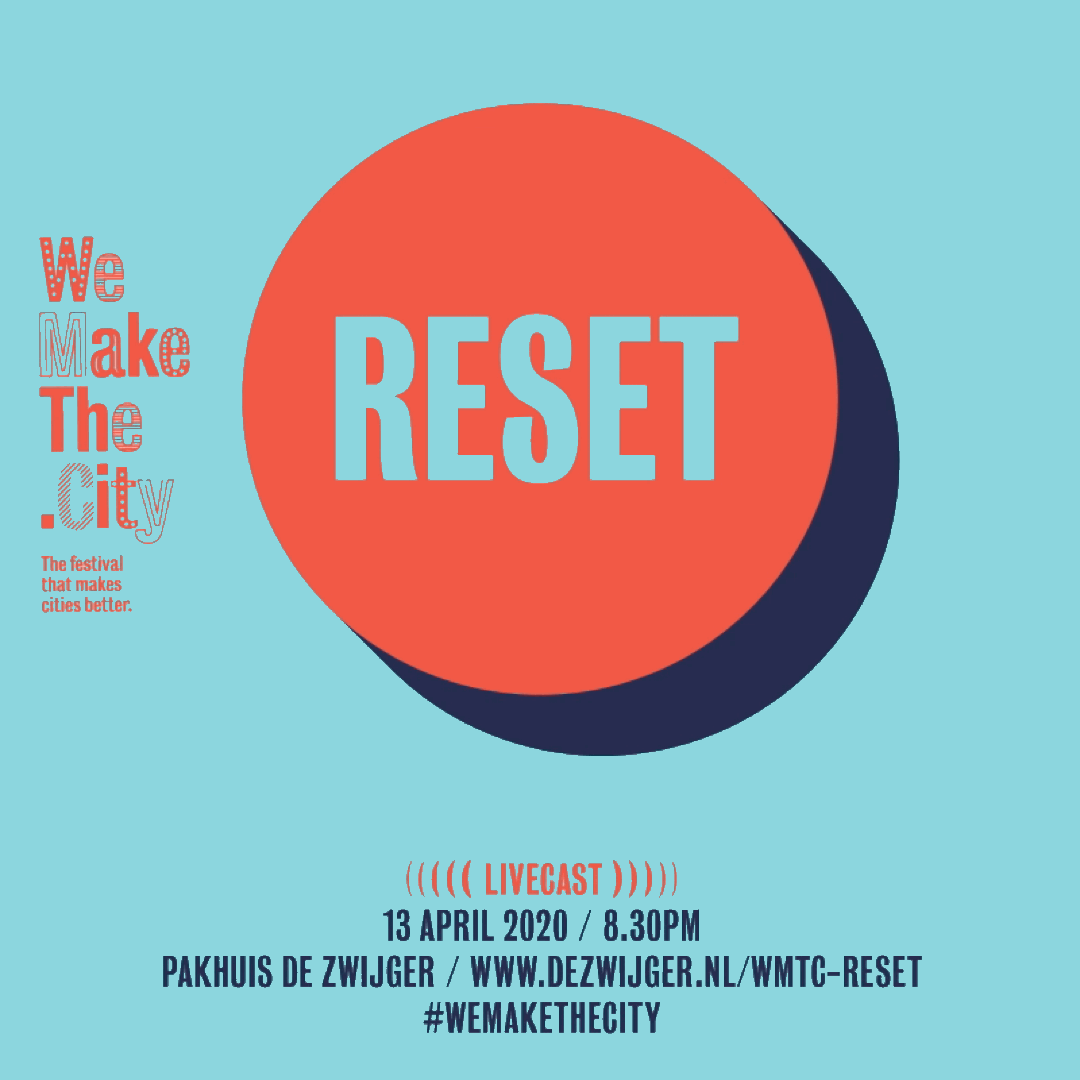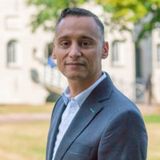The world is turned upside down, the streets are empty. Behind this seeming tranquility there is a storm raging through our values and structures. This gives us the space to think about a complete ‘reset’. How can we restructure existing dysfunctional systems? In this new series we will showcase the perspectives of a variety of thought leaders who will reflect on this present-day situation. Through the lens of their own area of expertise and with an emphasis on the Creative Industry. The corona crisis is, without a doubt, a crisis which is leaving behind a trail of victims. But which transformations will we be left with in the aftermath? During these times, it is the creatives who can visualize new scenarios and through hypothesising can develop new insights into our future.
Embrace the age of constant change
Because of the current crisis situation we are living our lives in a way we are not used to. Our freedom of movement has been limited and the way we communicate has changed. But what will our world look like after the crisis? Shall we continue with our lives the way we were used to? According to Farid Tabarki, we should accept the fact that we are living in a time of constant change, deal with its insecurities and develop much-needed resilience.
Farid Tabarki
Farid Tabarki is the founding director of Studio Zeitgeist and a sought-after keynote speaker, event host and world traveller. He is a regular contributor to Het Financieele Dagblad, a Dutch daily newspaper focusing on finance and economy (for six years he has been one of their weekly columnists). In 2017 his widely acclaimed first book ‘The end of the middle – What a society of extremes means to people, businesses and government’ was published in English. Since 2013 Farid became the youngest person on the list of the 200 most influential people in the Netherlands according to Dutch daily morning newspaper de Volkskrant. He also presented the parliamentary election edition of MTV Coolpolitics, which was broadcasted live on TMF and MTV Benelux. More recently he presented the television program Dare to Think, from Socrates to Sartre. Farid sits on various supervisory boards and committees. He is a member of the supervisory board of Stadgenoot (one of the largest housing corporations in Amsterdam), Prince Bernhard Culture Fund and International Theatre Amsterdam. In 2015 he was a member of Platform Onderwijs 2032: commissioned by the Dutch government, the platform presented a vision on Dutch education policy moving towards the year 2032. Last but not least, Farid is a true world traveller: he plans to visit all the countries of the world. The counter currently stands at 165 (33 to go).
Marina Otero Verzier
Marina Otero Verzier is an architect based in Rotterdam. She is Director of Research at Het Nieuwe Instituut (HNI), the Dutch institute for Architecture, Design and Digital Culture. At HNI she leads initiatives such as ‘Automated Landscapes,’ focusing on the emerging architectures of automated labour, and ‘BURN-OUT. Exhaustion on a planetary scale’, instigating forms of coexistence, sensibility and care for multispecies, collective bodies. Recently, she curated the exhibitions “Spirits in the Material World” by Heman Chong (2019), “Steve Bannon: A Propaganda Retrospective by Jonas Staal” (2018), co-curated “Malware: Symptoms of Viral Infection” (2019), “I See That I See What You Don’t See” at La Triennale Di Milano (2019). Previously, she was the curator of “Work, Body, Leisure,” the Dutch Pavilion at the 16th Venice Architecture Biennale (2018), Chief Curator of the 2016 Oslo Architecture Triennale together with the After Belonging Agency, and the director of Global Network Programming at Studio-X- Columbia University GSAPP (New York). Otero is a co-editor of Unmanned: Architecture and Security Series (2016), After Belonging: The Objects, Spaces, and Territories of the Ways We Stay In Transit (2016), Architecture of Appropriation (2019), More-than-Human (forthcoming, 2020), and editor of Work, Body, Leisure (2018). She studied at TU Delft, Columbia GSAPP, and ETSA Madrid, where she completed her PhD. Her thesis ‘Evanescent Institutions’ examined the emergence of a new paradigm for cultural institutions. She teaches architecture at RCA in London. From September 2020, Otero will be the Head of the Social Design Masters at Design Academy Eindhoven










